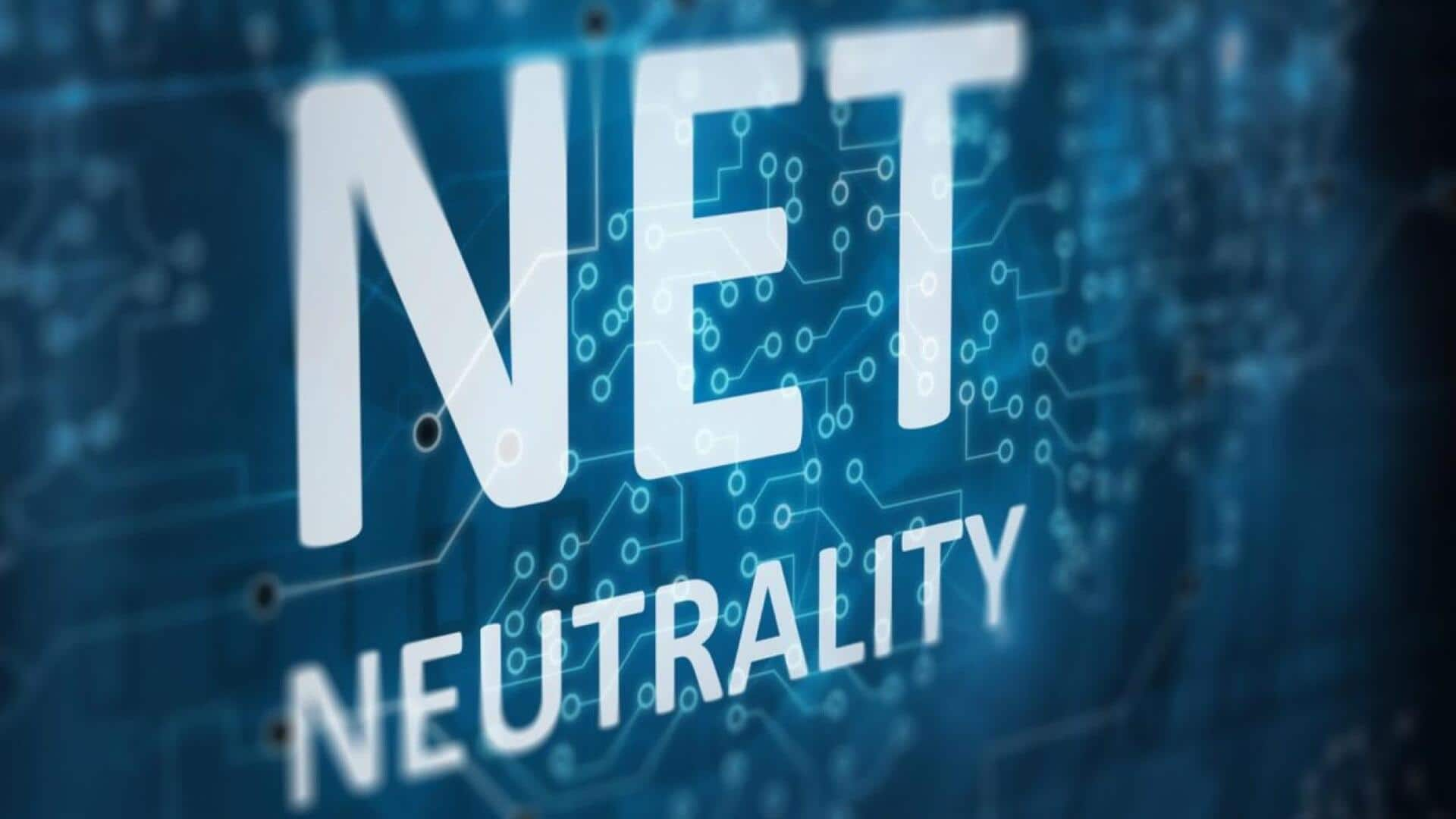
FCC reinstates net neutrality rules: Know its significance
What's the story
In a significant policy shift, the Federal Communications Commission (FCC) has reinstated net neutrality safeguards that were previously abolished during Donald Trump's administration.
The decision was divided along party lines, with three Democratic commissioners supporting the move and two Republican commissioners opposing it.
Brendan Carr, a Republican commissioner, criticized this decision as an "unlawful power grab."
ISP requirements
What is net neutrality?
Net neutrality regulations mandate that internet service providers (ISPs) treat all broadband usage impartially.
This means ISPs must provide users with access to all content, websites, and apps at uniform speeds and conditions.
They are prohibited from blocking or prioritizing certain content or charging streaming services for faster access.
The FCC initially adopted net neutrality safeguards in 2015 during the Obama administration, but these were later rescinded under Trump's tenure.
New classification
Broadband service now classified as essential communications resource
With the revival of net neutrality regulations, broadband service is now classified as an essential communications resource under Title II of the Communications Act of 1934.
This new categorization allows the FCC to regulate broadband internet similarly to utilities such as water, power, and phone services.
It also grants the agency authority over issues like outages and broadband network security.
Stalemate resolved
Biden tried to reinstate net neutrality safeguards in 2021
In 2021, President Joe Biden signed an executive order to reinstate the net neutrality rules, but FCC was unable to act due to a deadlock between two Democratic votes and two Republican votes.
The stalemate was broken when Anna Gomez was sworn in as the third Democratic commissioner on the panel in September 2023.
The FCC then promptly acted to reinstate net neutrality safeguards.
The decision to support net neutrality represents a victory for advocates of a fair and open internet.